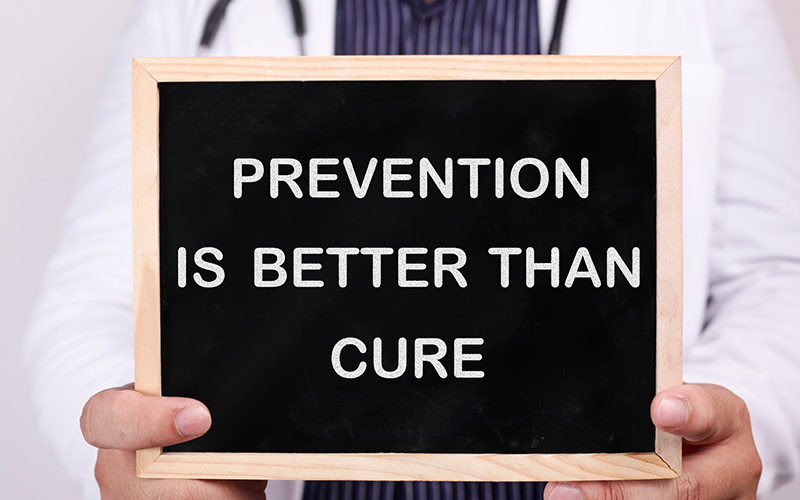
An ounce of prevention is worth a pound of cure. That’s why preventive health care is so important.
Preventive screenings can help find health problems early, when treatment and lifestyle changes work best. They can also keep you from getting certain diseases, such as cancer. Work with your primary care provider to decide when you should complete preventive care items based on your age, sex, medical history and personal risk factors. Consider making the following screenings part of you and your loved ones’ healthcare routine:
Breast cancer— The American Cancer Society recommends mammography every year for women ages 45 to 54, then every other year for women ages 55 and older. The U.S. Preventive Services Task Force (USPSTF) advises women ages 50 to 74 to have a mammogram every two years. Talk with your provider to decide the best screening schedule for you, especially if you have a higher risk for breast cancer.
Cervical cancer—Talk with your primary care provider to decide the best screening schedule for you. The USPSTF recommends that women ages 21 to 29 get a Pap test once every three years. Women ages 30 to 65 years can choose to have a Pap test every three years, an HPV test once every five years, or a Pap test and an HPV test once every five years. Women older than 65 who have had normal screenings and do not have a high risk for cervical cancer do not need to be screened.
Colorectal cancer—There are more screening options now than ever before. Talk with your care team to determine which one is right for you. The USPSTF and the American Cancer Society advise those at average risk for colorectal cancer to begin screening at age 45. Talk with your provider about the screening schedule and type of tests that are best for you.
Depression—Feeling better is possible. Our primary care team recommends that all teens and adults should be screened for depression.
Prediabetes and type 2 diabetes—Talk with your primary care doctor about your personal risk factors. This screening is recommended for all beginning at age 45 and anyone who meets one or more risk factors: obesity, first-degree relative with diabetes, women with history of gestational diabetes or polycystic ovarian syndrome and certain racial or ethnic minority groups.
High blood pressure—Valley primary care providers screen for high blood pressure every 1 -2 years for those who do not have high blood pressure. Adults ages 40 and older, and those at increased risk, should be screened every year. Find out your risk with this quiz and remember to talk with your doctor.
High cholesterol—You may not have any symptoms, but may still have high cholesterol. Know for sure with regular tests. Testing recommended every 5 years for men aged 35+ and women aged 45+, or anyone aged 20+ if they have risk factors for heart disease, including diabetes, tobacco use, high blood pressure or a family history of heart disease.
HIV—Everyone ages 15 to 65 and all pregnant women should be screened for HIV.
Lung cancer—Everyone knows that smoking raises your risk of cancer. Annual screenings are important if you are between ages 50 and 80 and you smoke, or if you quit within the last 15 years. Talk with your doctor to learn more.
Make the most of your yearly wellness exam/annual check-up with your primary care provider. At this visit, you can discuss any health concerns you might have and talk about the screenings, tests and vaccinations you need.
See Valley’s comprehensive preventive screening and vaccination guide.
Find a primary care clinic near you.


The font for this web page is way too light for reading….. with good or poor vision…. not very accessible… it needs more contrast & more readable font.
Thank you for this feedback, Dorinda! We welcome opportunities to increase access for our patients and will look at how we can improve visibility in these stories.